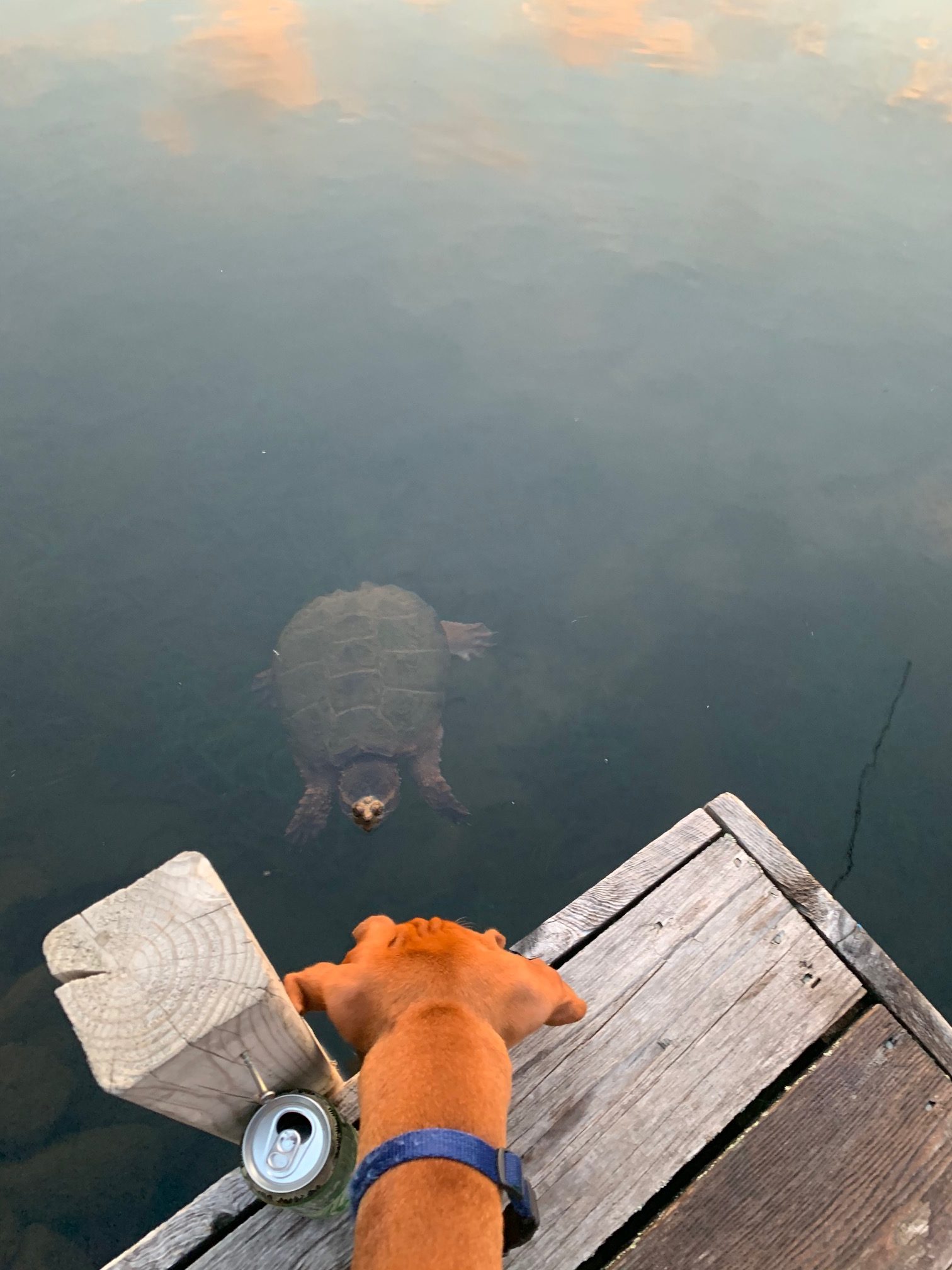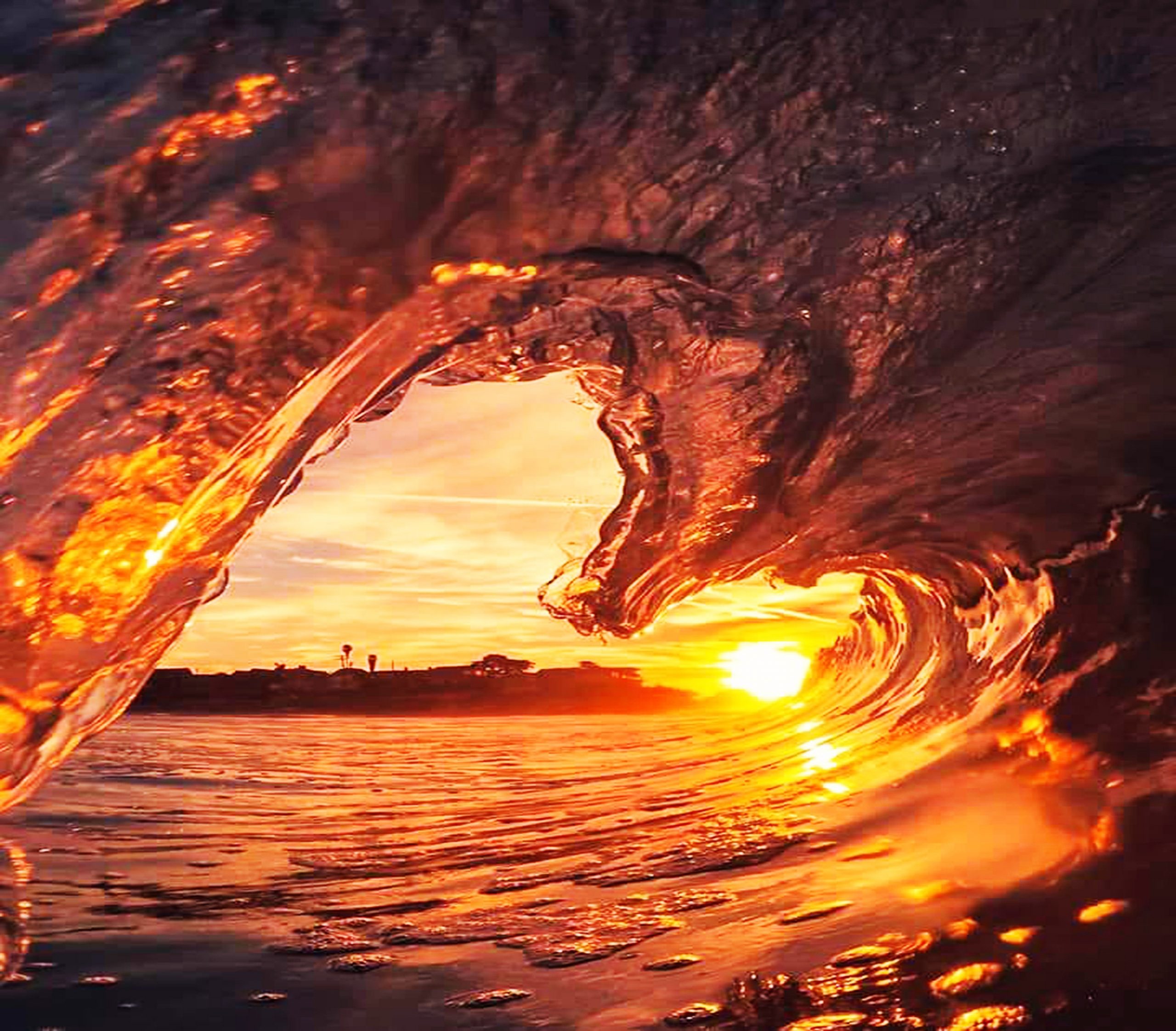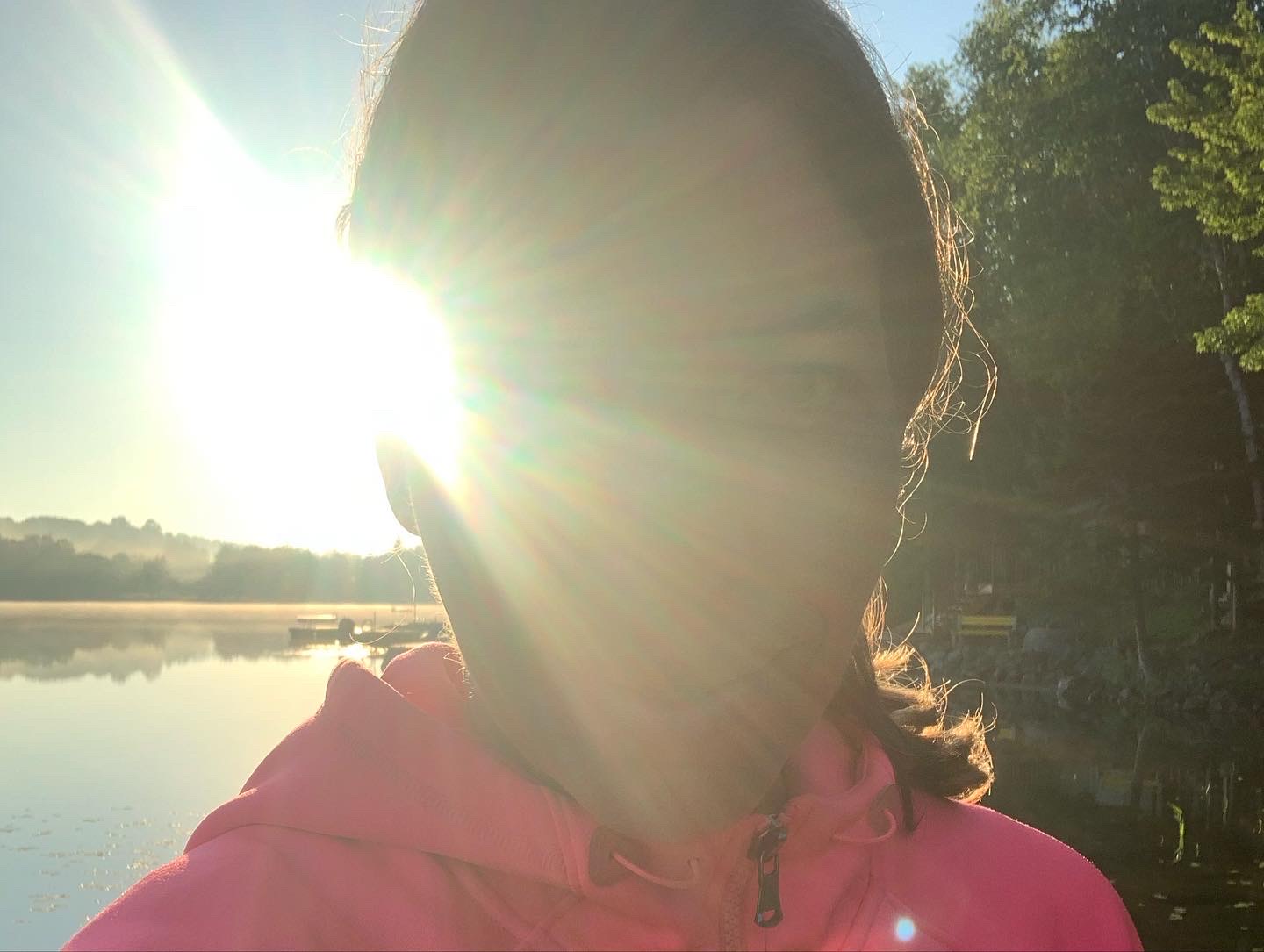Do you give yourself time to be creative in the way that you need?
A storm blows in. I’m sitting beside an open sliding door and there’s the smell and warmth of fresh rain in the summertime wafting in, and the pitter patter of water droplets hitting leaves and branches creating a cascading effect all the way down to the forest floor. The sound of the waves lapping the shore is overshadowed by booming skies, crackling thunder.
With overcast skies, the lake’s the colour of a silver coin. The sun wants to push through.
Bright, hot, and sunny this morning, cloudy and thunderous this afternoon; the day’s as undecided as I am. With the children visiting their grandparents, the pressure to enjoy the absence of something becomes too great. One minute I tell Dan I’m going to focus on writing, use the time to get some work done, the next we’re packing up the car to take our dog Louie for another hike. We hiked sixteen kilometers total the day before, but yet, somehow in the absence of something, more was not enough.
So we hike again, then after the hike I plan to visit the dock. I pack my tote bag full of books, notebooks and pens, silicone earplugs and oversized black sunglasses. I slide my pink flip flops on then get sidetracked writing a poem. The poem complete, more or less, I scoop up the handles of my tote just as the rain comes pouring down.
Dan and I spend more time talking about what we’re going to do next then actually doing anything. We talk some more, and we talk some more beyond that because in the absence of something the space must be filled with everything else. An onslaught of words and ideas rushes forth. We could talk for years.
Dan has committed to running a few errands. He waivers, attempts to tell me one more story about his conversation with a local dog trainer before heading out the door, but my mind is already elsewhere, onto the thing it is I will be doing in the thunderstorm in the absence of something. I wish to fill the space perfectly, deliberately, with an activity of my choosing – not of necessity.
“Do you want to hear about the dog trainer?”
My husband has caught me tuning out, moving into the space and sphere of my own consciousness. Did I reply, “not really,” or “how about you tell me later,” or plain “go ahead,” I can’t recall, but what I do remember specifying is my desire for him to be in charge of that project. I’ll take part, do my duty, but it’s not my show.
A hummingbird suspends itself in front of my window, hovering long enough to have a good look. Its wings beat so fast I can’t see them, and I think, yes, that is the speed I travel in the presence of everything. I beat my wings fast and hard so that I too may look in on the writer.
I shoo Dan out the door and turn to my pen – or should I type on my laptop?
At Algonquin Park, where we hiked, I picked up two books from the visitor centre. One titled Braided Sweetgrass: Indigenous Wisdom, Scientific Knowledge and the Teachings of Plants by Robin Wall Kimmerer, and the other a lovely illustrated edition of The Hidden Life of Trees by Peter Wohlleben. In lieu of picking up my pen, I sit down on the couch with the latter, open the front cover and notice the author’s name written on the page. I decide I should follow him on social media and so I sit back down at my desk to pick up my cell phone.
But instead, I reach for my pen and fill my life with the presence of words, the absence of regret. Time well spent.
I squint looking outside, the day is now bright.
The storm has passed. The water’s calm and the skies are clear.
I hear a few measly drops, the soft hum of the fridge. A truck passing by in the distance.
A lone moth flutters by, otherwise the world is still and silent. Not even the birds sing.
The sun peaks out.
I think I’ll go back down to the dock, but who knows.
A single bird breaks the silence with its melodic trill.
An echo beating in the sky, the sound of base drums, reverberates in the distance. This isn’t over yet.






